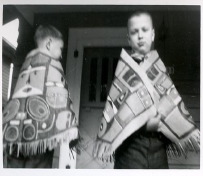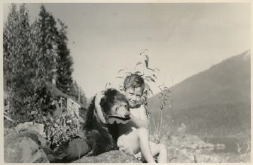
Did you know that your browser is out of date?
To get the best possible experience using our website we recommend that you upgrade your browser to a newer version. The upgrade to the software below is free.
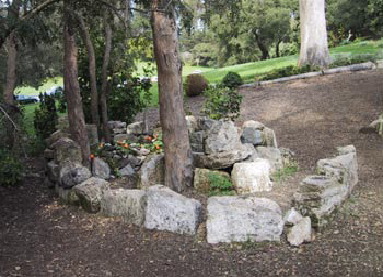


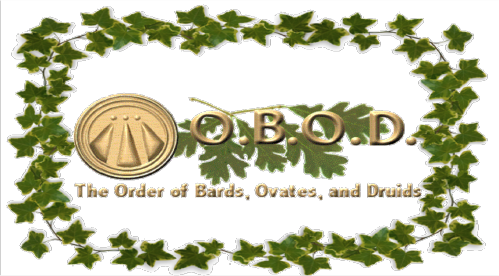

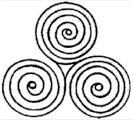

Jungian Psychology
Carl Jung's psychology is based on his extensive study and practice of one of these, alchemy, that is a spiritual process symbolized by transforming lead into gold, and his cross-cultural study and practice of worldwide earth-based traditions and their respective spiritual practices of shamanism and animism. The 20th Century New Age Movement that was heavily influenced and born in the West, was heavily influenced by its germinal parents, Carl Jung, Gurdjieff and Ouspensky and a series of books (e.g., The Life and Teachings of the Masters of the Far East by Baird T. Spalding (1857-1953).
Western Mystery Tradition
Part of the magic and mystery of the western mysteries traditions and earth-based traditions is a belief in the inner temples and teachings of Spirit and evolved humanity that exist within and beyond all time and space. Some of the western mysteries traditions include mystic Christianity, Druidism, Egyptian mystery, western magic, Qabala, Sufism, Rosicrucianism, alchemy and the Knights Templar, etc. Shamanism Vs. Religion
Over the last three hundred years, western people (Europe, the Americas, Australia and New Zealand) became disconnected from nature, community, family and inner spirituality with the advents of the Age of Reason (thinking disconnected from the rest of being) and the Industrial Revolution. It is our primary goal to reconnect our members. Religion, for most people, has become a disconnected mechanical and external process or only something "a good person" is supposed to do, or be. Religion has become a passive process, like television in which the seeker watches a priest, a ritual, and waits for something to be done to or for him or her. It has become, for the most people, something that is mechanical and limited to a few hours on Saturday or Sunday. This religious dysfunction is a relatively new phenomenon in the world, only about three hundred years old.
Traditionally, religious and spiritual traditions involved one's total way of life from sunrise to sundown. How one dressed, ate, moved, related, though and felt. Religions and spirituality, in the past, were not compartmentalized to a few hours per week. They involved one's total way of life. They were an integrated part of family and community life. Therefore, what we will be requesting of spiritual seekers in these groups will seem foreign and may not make sense at first. An 11th Century Christian or Jew would find it easier to understand our philosophy than many modern "religious" people.
Philosophy and practice of the Mabon Groups
It is our assumption that most members joining these circles come from a Judeo-Christian, or western religious background. We will be exposing members to a wide variety of mystical practices and viewpoints, both western and eastern. Some of these unfamiliar arts might include mystic Byzantine Christianity, Druidism, Wiccan, Celtic Shamanism, Sufism, Rosicrucianism, R.J. Stewart, inner temple, underworld, Faerie tradition, Bardic, Kabala, Hinduism, Buddhism and Native American Shamanism. Five Shaman Circles is experience-based rather than intellectual.
Therefore, our teaching and exploring will be experiential rather than lecture in modality. Traditionally, the western mystery traditions value visualization over words. Our modern western culture and education is very limited and biased to modes of talk and intellect. 90% of our consciousness, such as body awareness, intuitive awareness and emotional awareness, are not best served by being limited to words and intellect. Therefore, we will be participating in active processes of various meditations, guided journeys, shamanic journeying, breath work, chanting, psycho-drama, spiritual theatre, ritual, dream work (including acting-out dreams in a Gestalt way), creative processes, such as drumming, art, music and poetry and dance and movement work.
We believe in the philosophy of Jungian Transpersonal Psychology that teaches that the mind, the body and the spirit are equally important. One must develop all three-mind, body and spirit and live in all three-ultimately, they are one. Because of the great deal of wounding and rejection of us, double-being persons, in our growing-up processes, in our cultures and in modern religions, we must in our own spiritual circles devote time and energy to the healing of our own wounds and our communities.
Therefore, in Mabon groups, a number of Jungian-Gestalt processes will be included. These include witnessing and listening to each other relate personal histories and pain; active listening; Jungian-Senoia dream work that includes Gestalt acting-out-of members dreams. We will work in active Gestalt Psycho-theatre methods with various Jungian Archetypes, including the shadow, anima, Animus, puer aeternis (the masculine archetype of king, warrior and magician, the feminine archetypes of mother, maiden and crone).
